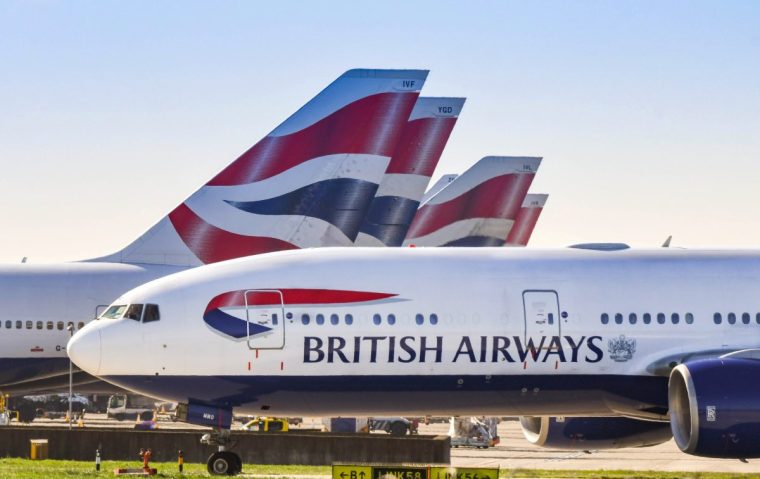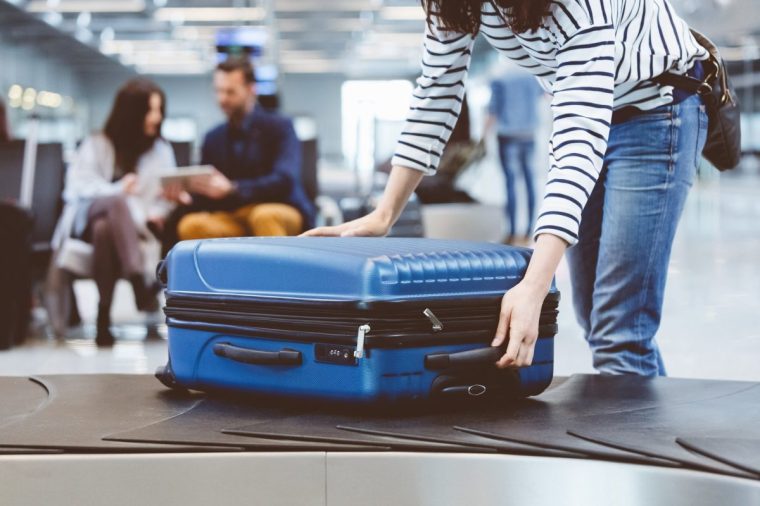This festive season is set to be the busiest for travel from UK airports since 2019, according to the Civil Aviation Authority (CAA).
The CAA is advising the millions of travellers who are expected to fly over the Christmas period to understand their consumer rights and review airlines’ packing rules.
While you can find out what to do if your flight is disrupted or cancelled in our guide, there are potential hiccoughs you may not have considered while packing for your trip. To avoid a stressful start to the festivities, here’s what to check – from luggage allowances to which item you can’t take on board.
The most and least generous luggage allowances
British Airways has the most generous allowance among UK-based airlines, with a suitcase of 56 x 45 x 25cm permitted for each passenger as hand luggage, even those flying on an Economy Basic fare.
Passengers with Economy tickets or higher are allowed to check in at least one 23kg bag at no extra cost – just check your allowance before you fly.
Those with an Economy Basic ticket can add a 23kg checked bag for a further charge. If you book online, it will cost between £35 and £80, depending on your route, or between £75–£95 if you add the bag at the airport, so it makes sense to plan in advance.

(Photo: Ceri Breeze/Getty Images)
British Airways considers any bag that weighs more than the passenger’s baggage allowance, or is larger than 90 x 75 x 43 cm, to be excess baggage and charges passengers £65, regardless of how heavy the bag is.
When flying with Jet2, the rules are stricter. Although the budget airline’s cabin bag dimensions match BA’s, its weight limit is capped at 10kg.
Jet2 fares also don’t always include free hold baggage – check your allowance before you travel – and the airline charges between £8 and £45 for 22kg of checked luggage, depending on the destination.
Baggage over that weight limit will incur an additional £12 per kg charge for each leg of the journey.
On easyJet, a cabin bag that fits under an airline seat is included with a basic fare. The bag must measure no more than 45 x 36 x 20cm.
You can bring a large cabin bag, with dimensions of 56 x 45 x 25 cm, for an extra fee – from £5.99, depending on when and where you’re flying. Passengers who opt for a large cabin bag are given speedy boarding.
EasyJet has a two-tier system for checked luggage. A 15kg bag costs from £6.99, while a 23kg suitcase costs from £9.49 when booked online, or a minimum of £40 if you pay at the airport.
If your bags are overweight, easyJet will charge you £12 per kilo.
Like Jet2, weight is a consideration when it comes to cabin bags for Wizz Air. Not only must your suitcase be no larger than 40 x 30 x 20 cm but, if your carry-on bag weighs more than 10kg, you may be charged extra.
A larger cabin bag of 55 x 40 x 23 cm can be added to a fare for around £8.25, depending on when and where you travel.
Wizz Air also offers various weight options for checked bags. A 10kg bag costs from £4.15, a 20kg suitcase can cost between £5.80 and £78.50, and a 32kg piece of luggage can set you back between £11.50 and £98.90. Prices obviously vary widely, so check before you travel, not least because overweight bags will be charged at around £10.75 per kilo.
Ryanair has one of the smallest free carry-on size allowances, at just 40x20x25cm. Passengers who need more space can bring a larger bag of 55 x 40 x 20 cm at a cost of between £6 and £60. Passengers with oversized luggage may be asked to check it into the hold for a fee of between £70 and £75.

A 10kg hold bag will cost between £9.49 and £44.99, while a 20kg checked-in suitcase – the heaviest option offered – will be between £18.99 and £59.99, depending on the route and whether you pay online or at the airport.
If you go over your weight limit for Ryanair hold luggage, you’ll be charged £12 per kilo.
How to avoid extra charges
While airline staff may allow passengers a little leeway at quiet times, planes flying at peak times, such as Christmas, are more likely to be full – with no room for luggage beyond your allowance, especially in the cabin.
If in doubt, double check your bag’s weight against your airline’s policies and, if you’re over, pay for extra kilos in advance (which is generally cheaper than paying at the airport), or repack.
If you realise your suitcase simply doesn’t hold enough for your needs, some airlines might allow you to add additional bags to your booking up until the time of your online check in.
Although sturdy bags seem the most reliable, they can add extra weight. To avoid going over weight, consider a lightweight suitcase with a soft shell, or a canvas backpack.
Regardless of the type of luggage, make sure to weigh your bag before you set off to the airport.
Portable luggage scales are cheap and compact. Bring some with you, so that you can weigh your bag before you fly home – and avoid any extra fees on your return journey.
The festive staples banned on planes
The CAA has issued a warning about the items you cannot take on a plane. Double-checking what’s in your hand luggage is especially sensible at Christmas when airport security can be busier than usual, and you want to avoid further delays.
Lithium batteries, which cannot go in the hold, are found in more items than you might expect. They are used in vapes, mobile phones, tablets, laptops and power banks, but also some toys and other Christmas presents. If they get damaged, they can pose a fire risk.
Passengers can carry a maximum of two extra batteries and they must be kept in cabin bags.

Airlines’ policies do vary, so check your carrier’s rules regarding lithium batteries before you fly.
Over Christmas and new year, travellers might want to pack festive favourites, such as party poppers and Christmas crackers. However, party poppers are banned from all UK aircraft – in both cabin and hold luggage – while the rules around Christmas crackers vary from airline to airline.
British Airways, easyJet, Tui and Virgin Atlantic will carry them, but state that they must be in their original packaging.
Aer Lingus and Ryanair, in contrast, are among 18 airlines worldwide that have banned the transportation of Christmas crackers outright.
For airlines that permit passengers to bring crackers, rules vary on how many you can pack, and if they must be placed in the hold. As always, make sure to check before you travel.

